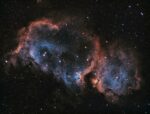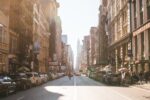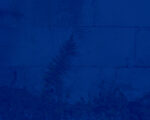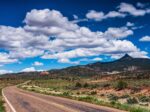Fields of Revelation: A Conversation with Bruce Beasley
By Interview Issue 121
In many ways, all my poems are writings in a spiritual diary, both faithful and despairing (and seeking faith amid states of desolation).
Read MoreTo Arm Ourselves Instead with Questions
By Interview Issue 120
What I have decided, at least for now, is that I’m not afraid of the struggle. Jacob’s struggle with the man (or angel?) is my struggle. I’m not letting go. I’m holding on for the blessing. Blessing
Read MoreYou Write What You Can’t Forget: A Conversation with Richard Lischer
By Interview Issue 119
I believe memoir is the most intimate of genres and, for that reason, an excellent literary response to loneliness.
Read MoreA Conversation with Denise Levertov
By Interview Issue 18
Denise Levertov was born in England and came to the United States in 1948. She became known as one of the century’s most important poets and writers. Awards for her work included the Lenore Marshall Prize, the Robert Frost Medal, and the Lannan Prize. Her last years were spent in Seattle, Washington, where she won…
Read MoreDream of a New Rhythm: A Conversation with Miho Nonaka
By Interview Issue 118
It almost takes a supernatural power to insist on existing, belonging, and mattering as an embodied presence when you are an outsider.
Read MoreImage Issue 1: A Conversation with Frederick Buechner
By Interview Issue 1
For Image’s inaugural issue, editor Harold Ficket interviewed the Presbyterian minister, novelist, and memoirist Frederick Buechner (1926-2022), covering a range of topics of interest: inspiration for his novels, the ambiguity inherent to experiences of the divine, and the faith-informed vision necessary for seeing miracles. “God moves in these elusive, mysterious, ambiguous ways through our lives,”…
Read MoreIncident and Significance: A Conversation with Christopher Beha
By Interview Issue 117
My relationship to the novel form is among the most important relationships in my life.
Read MoreCurator’s Corner
By Interview Issue 115
“We’re wagering on the importance of spaces that support artists holistically, as creators of value that isn’t simply financial.”
Read MoreObliqueness and Extravagance: A Conversation with Rowan Williams and Shane McCrae
By Interview Issue 115
If poetry has nothing else to say, it says this: this world is much more peculiar than you imagine.
Read MoreDark Paths to Resurrection: A Conversation with Bill Mallonee
By Interview Issue 114
I don’t think God wastes anything, our victories or our failures.
Read More








